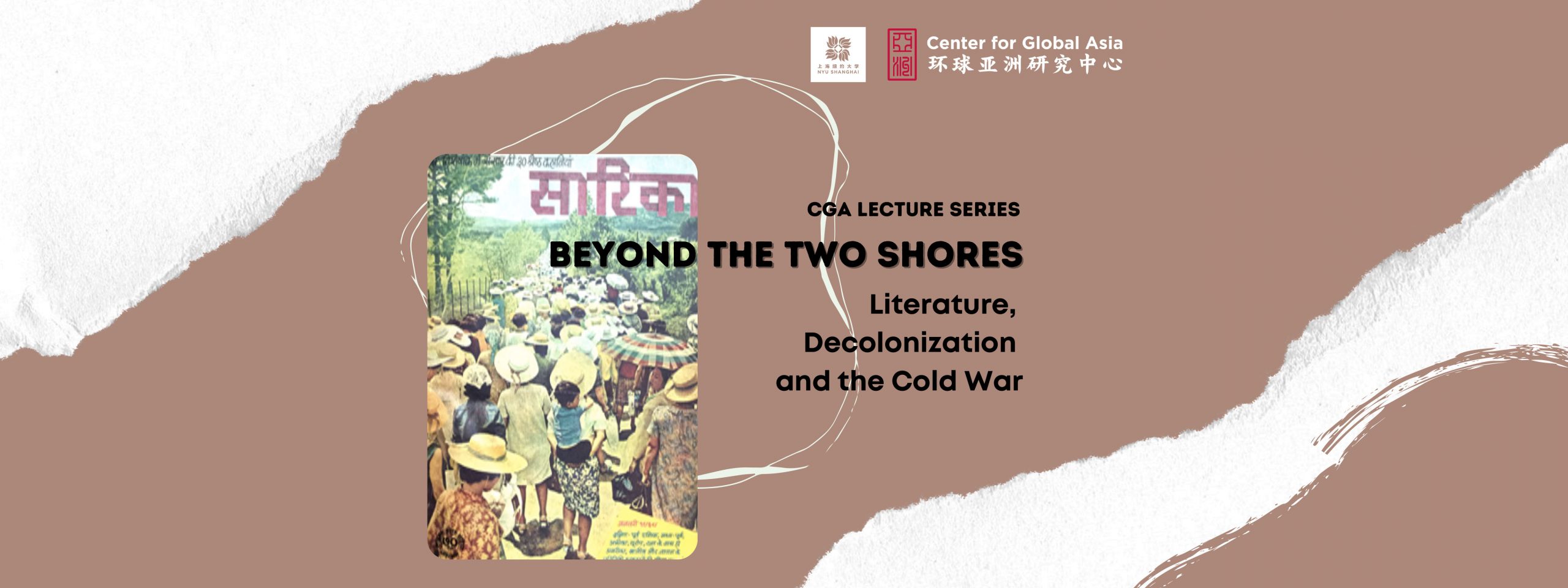CONTACT US
Email: shanghai.cga@nyu.edu
Phone Number: +86 (21) 20595043
WeChat: NYUShanghaiCGA
Address:
Room W822, 567 West Yangsi Road,
Pudong New Area, Shanghai, China

© 2024 All Rights Reserved

Speaker: Francesca Orsini
Venue: Hosted via Zoom
Date & Time:
2021-9-29 | 20:00-21:30 (Shanghai)
2021-9-29 | 8:00-9:30 (New York)
2021-9-29 | 16:00-17:30 (Abu Dhabi)
2021-9-29 | 13:00-14:30 (London)
In her recent monograph At Penpoint: African Literature, Postcolonial Studies, and the Cold War, Monica Popescu convincingly argues for restoring the Cold War as the background and shaping element of decolonizing struggles. What the Cold War and the decolonization period show so crucially (and excitingly, for literary scholars) is how seriously literature was taken at the time, and how instrumental print cultures were considered to wage and advance certain struggles and ideas. If the Cold War weaponized literature and was predicated on its power and agency, decolonial and postcolonial struggles were also fought ‘at penpoint’. Indeed, much has been written on Cold War literature, though until recently mainly from the perspectives of the USA, Soviet Russia, and China. But was the “rest” of the literary world of Asia, Africa, and Latin America merely a battlefield for rival ideologies, falling under either American or Soviet influence? Such a perspective is not only acutely Eurocentric, it also does not do justice to the vitality of literary activism in the decolonizing world, and to the multiple ways by which Third-World print cultures broke free from Cold War antagonisms, and from imperial superpowers. Restoring the Cold War as one of the important genealogies of decolonizing and post-colonial struggles is critical to understanding the emergence of new literary aesthetics and internationalisms at the time, and to make sense of the complexity and vitality of Third-World print cultures and of the debates and tensions (between or across ideologies and forms) that shaped them. It also makes us appreciate the challenges many Third-World, postcolonial writers faced, and the significance of the aesthetic, editorial and political choices they made.
This talk will consider the Cold War as the background and condition that enabled Indian literary magazines of the 1960s to open up to African and other Third World literatures as never before. It will particularly focus on a mainstream Hindi short story magazine, Sarika (Starling), and its editor Kamleshwar’s attempt to re-orient world literature and fashion a committed but autonomous aesthetics that went ‘beyond the two shores’.
Francesca Orsini is Professor emerita of Hindi and South Asian Literature at SOAS, University of London, a Fellow of the British Academy, and the author of The Hindi Public Sphere (2002) and Print and Pleasure (2009). She is interested in literary multilingualism in the longue durée and has just finished a book on the multilingual literary history of North India, a research project (funded by the European Research Council) called Multilingual Locals and Significant Geographies: for a new approach to world literature from the perspective of North India, the Maghreb, and the Horn of Africa, and an edited volume on Hinglish (with Ravikant). She co-edits with Debjani Ganguly the Cambridge Studies in World Literatures and Cultures, and is an editor of the Journal of World Literature.
Introduction by Adhira Mangalagiri, Lecturer in Comparative Literature, Queen Mary University of London; Postdoctoral Fellow, Center for Globa Asia, NYU Shanghai.
To our visitors:
• RSVP may be required for this event. Please check event details
• Visitors will need to present a photo ID at the entrance
• There is no public parking on campus
• Entrance only through the South Lobby (1555 Century Avenue)
• Taxi card
• Metro: Century Avenue Station, Metro Lines 2/4/6/9 Exit 6 in location B
• Bus: Century Avenue at Pudian Road, Bus Lines 169/987
Email: shanghai.cga@nyu.edu
Phone Number: +86 (21) 20595043
WeChat: NYUShanghaiCGA
Address:
Room W822, 567 West Yangsi Road,
Pudong New Area, Shanghai, China

© 2024 All Rights Reserved